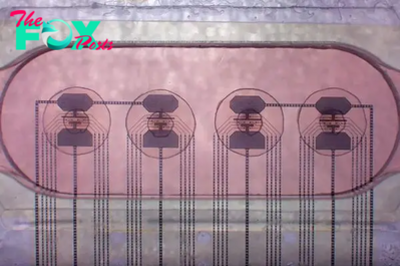Technology
Unique transistor 'could change the world of electronics' thanks to nanosecond-scale switching speeds and refusal to wear out
Researchers have developed a new type of transistor that they say could "change the world of electronics" within the next two decades.
The new transistor is built using an ultrathin material created from stacked, parallel layers of boron nitride, which researchers claim can switch between positive and negative charges in nanoseconds and withstand over 100 billion cycles without wearing down.
This makes it ideal not only for high-speed, energy-efficient electronic devices, but also for denser memory storage. Because boron nitride is so thin — and because the voltage needed for switching polarization scales with thickness — transistors made from this material would have remarkably low power demands.
In a statement, the researchers said the material’s properties "already meet or exceed industry standards" compared to existing transistor materials. They published their findings June 6 in the journal Science.
Related: 'Universal memory' breakthrough brings the next generation of computers 1 step closer to major speed boost
"In my lab we primarily do fundamental physics. This is one of the first, and perhaps most dramatic, examples of how very basic science has led to something that could have a major impact on applications," study co-author Pablo Jarillo-Herrero, a professor of physics at MIT, said in the statement.

Boron nitride can switch between positive and negative charges in billionths of a second thanks to its ferroelectric properties. This is a term used to describe materials that have spontaneous electric polarization (separation of positive and negative charges) that can be reversed by applying an electric field. In the new material, this polarization occurs due to a unique sliding action of the material’s layers that happens when it is subjected to an electric current. As the layers of boron nitride slide past each other, the positions of the boron and nitrogen atoms change, causing the charges to switch.
-

 Technology58m ago
Technology58m agoSpaceX's Polaris crew gears up for historic private spacewalk
-

 Technology5h ago
Technology5h agoThe mystic and the mathematician: What the towering 20th-century thinkers Simone and André Weil can teach today’s math educators
-

 Technology17h ago
Technology17h agoEurope's Jupiter probe to stage daring lunar-Earth fly-by
-

 Technology1d ago
Technology1d agoAstronomers have warned against colonial practices in the space industry − a philosopher of science explains how the industry could explore other planets without exploiting them
-

 Technology1d ago
Technology1d agoCould we use volcanoes to make electricity?
-

 Technology1d ago
Technology1d agoGovt faults 'VPN overuse' for internet slowdown
-

 Technology2d ago
Technology2d agoGovt denies internet slowdown, blames excessive VPN usage for disruptions
-

 Technology3d ago
Technology3d agoPakistan develops first-ever lifesaving hemostat dressing



























